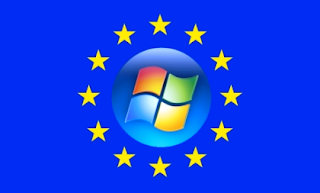According to Microsoft, forcing a US company to hand over data it stores overseas back to the American government for law enforcement purposes would further harm relations between the US and Europe.
In a written submission to the Second Circuit Court of Appeals in New York, Microsoft's outside counsel Joshua Rosenkranz argued that cross-border data transfers are "fraught" and "easily gives rise to international discord."
The letter, seen by ZDNet and also posted last 6 October to the appeals court, was submitted following the software giant's supplemental earlier oral arguments in September.
Microsoft has been fighting the US government for the past two years in a case that threatens to unravel trust in the US tech industry. The case centers on a US search warrant which federal prosecutors are applying to foreign data stored by Microsoft in its Dublin datacenter - the first such extraterritorial warrant of its kind.
Prosecutors argue Microsoft, a US-based company, holds the data, while the software giant says the warrant goes beyond the means of a traditional warrant because it forces the company to hand over data it stores in another country, which in itself is subject to different laws and regulations.
In refusing to comply with the warrant, Microsoft agreed to a contempt of court charge a year ago.
Rosenkranz added that Congress must be allowed to decide whether allowing the US government to extend its email privacy laws abroad "outweighs the risks to US industry and US-EU relations."
His comments come in the wake of the 6 October decision by the European Court of Justice to invalidate the transatlantic Safe Harbor data privacy pact.
The deal, set up more than a decade ago, allows EU companies to easily transfer personal data to the US without being bogged down with burdensome approval processes. Companies approved under the deal promise to protect that data as though it was still in Europe, where data protection and privacy laws are stricter.
But the highest court in the 28 member state bloc struck down the data accord, arguing the data was not protected from US intelligence agencies or surveillance programs, making any data transfer technically unlawful under European law.
In a written submission to the Second Circuit Court of Appeals in New York, Microsoft's outside counsel Joshua Rosenkranz argued that cross-border data transfers are "fraught" and "easily gives rise to international discord."
The letter, seen by ZDNet and also posted last 6 October to the appeals court, was submitted following the software giant's supplemental earlier oral arguments in September.
Microsoft has been fighting the US government for the past two years in a case that threatens to unravel trust in the US tech industry. The case centers on a US search warrant which federal prosecutors are applying to foreign data stored by Microsoft in its Dublin datacenter - the first such extraterritorial warrant of its kind.
Prosecutors argue Microsoft, a US-based company, holds the data, while the software giant says the warrant goes beyond the means of a traditional warrant because it forces the company to hand over data it stores in another country, which in itself is subject to different laws and regulations.
In refusing to comply with the warrant, Microsoft agreed to a contempt of court charge a year ago.
Rosenkranz added that Congress must be allowed to decide whether allowing the US government to extend its email privacy laws abroad "outweighs the risks to US industry and US-EU relations."
His comments come in the wake of the 6 October decision by the European Court of Justice to invalidate the transatlantic Safe Harbor data privacy pact.
The deal, set up more than a decade ago, allows EU companies to easily transfer personal data to the US without being bogged down with burdensome approval processes. Companies approved under the deal promise to protect that data as though it was still in Europe, where data protection and privacy laws are stricter.
But the highest court in the 28 member state bloc struck down the data accord, arguing the data was not protected from US intelligence agencies or surveillance programs, making any data transfer technically unlawful under European law.


No comments:
Post a Comment